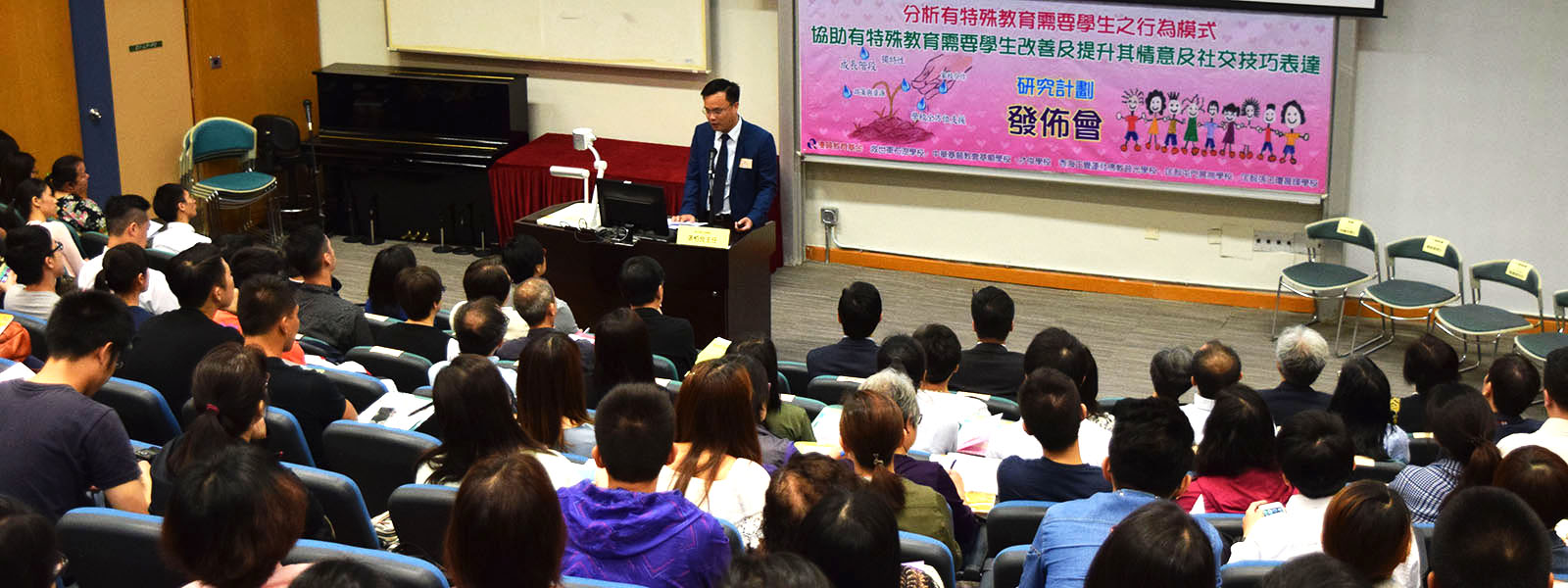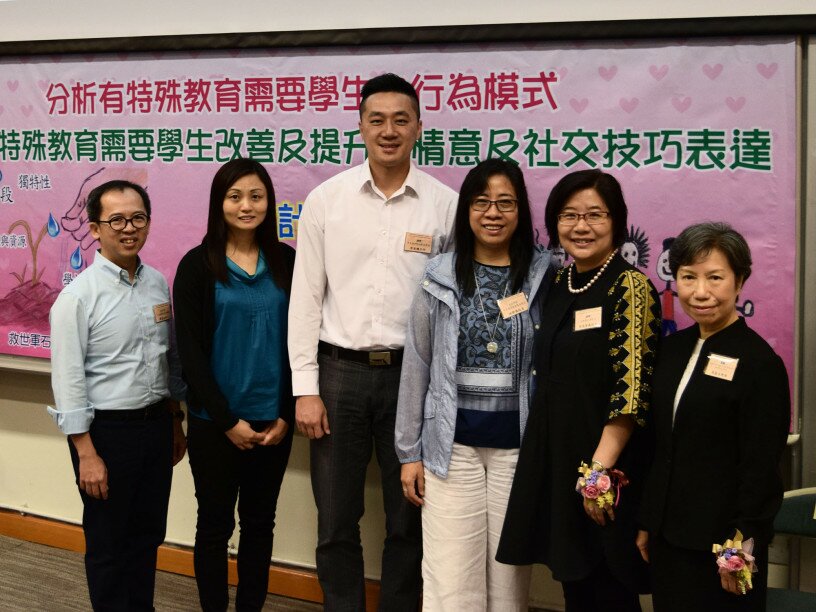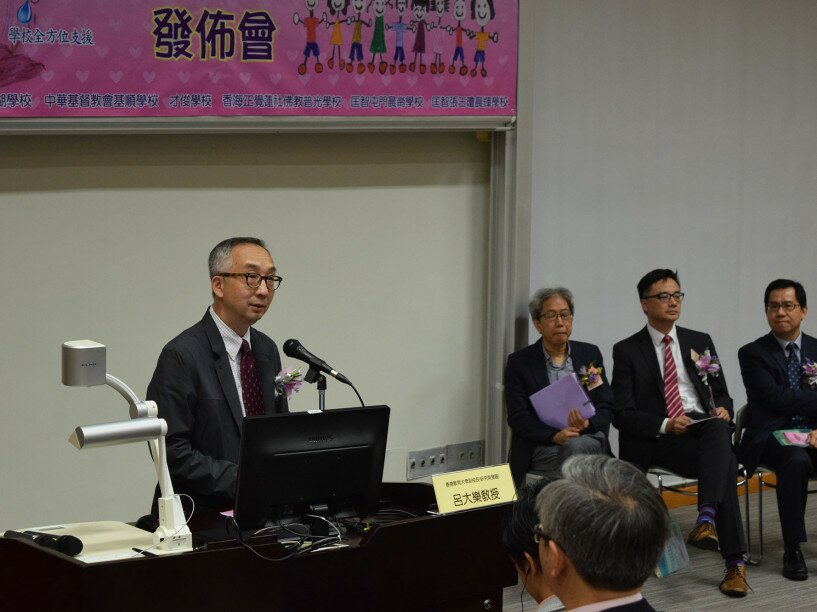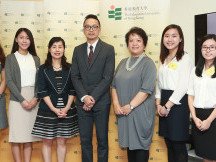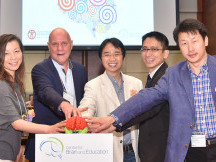QEF Study on SEN Student Behaviours and Affective Development
QEF Study on SEN Student Behaviours and Affective Development
The Dissemination Conference for the Quality Education Fund (QEF) Project entitled “Analysing the Problem Behaviours of SEN Students and Supporting their Affective and Social Development” was held today (27 May) at The Education University of Hong Kong (EdUHK), attracting over 200 educators and parents.
With the support of the QEF, the Salvation Army Shek Wu School (SHEKWUSCH) initiated the research study in 2016 in collaboration with Professor Magdalena Mok Mo-ching and Dr Ho Fuk-chuen of EdUHK. The research team spent three years collecting data from 69 SEN students (totalling 355 cases) through questionnaires, interviews and case studies, to identify problem behaviours with high prevalence rates, the reasons behind such behaviours and effective solutions for their management.
In addition to SHEKWUSCH, five other schools participated in the project, including the IMC of CCC Kei Shun Special School, Choi Jun School, HHCKLA Buddhist Po Kwong School, Hong Chi Morninghill School and Hong Chi Winifred Mary Cheung Morninghope School.
The researchers found that “unsatisfied needs” (about 25%), including mental desire (10.85%), hobbies/habits (9.58%) and physiological needs such as hunger and excretion (3.8%), were the major reason behind SEN students’ problem behaviours. Stimulation and criticism also triggered the students’ emotional and behavioural problems (around 10.85%). The students tended to express their emotions through “disobeying orders” (around 33%), “shouting” (17.6%), or “hurting others” (16.02%). In addition, about 7% of them expressed their emotions in the form of “crying” or “self-harm”.
Another important finding was that “record books” used to record students’ behavioural patterns for review and improvement were effective solutions. However, other effective methods such as “rewarding scheme/verbal praise” and “arranging meaningful activities” were not often used by schools.
Professor Magdalena Mok Mo-ching, Chair Professor of Assessment and Evaluation and Director of the Assessment Research Centre at EdUHK, said that “affective and social development has a significant influence on SEN students in terms of physical and mental health, academic performance, character building and social adaptation. It also plays an important role in SEN students’ quality of daily and study life”.
Professor Mok suggested that schools provide SEN students with more opportunities for participating in meaningful activities or assign them roles. More verbal compliments could also enhance students’ confidence, thus reducing their problem behaviours.




